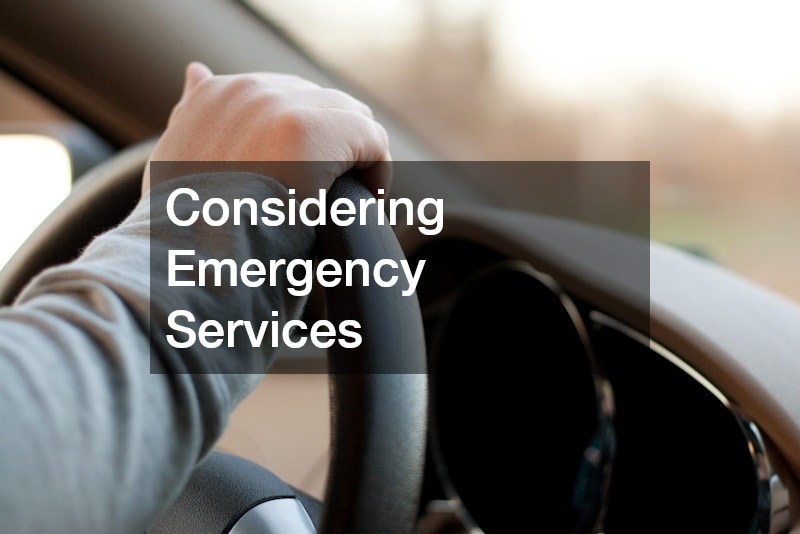Buying your first car is a major milestone for anyone and can often be a daunting experience. It’s not just about choosing a vehicle that looks good or has the features you want—it’s about making a smart, informed decision that balances your needs, your budget, and your safety. Many first-time buyers rush into the process, enticed by flashy models or aggressive sales tactics, without fully understanding the responsibilities that come with owning a vehicle. From understanding financing options to learning about insurance, maintenance, and roadside services, there’s a lot to consider before you sign on the dotted line.
Your first car is more than just a mode of transportation; it’s an investment in your independence. You’ll want to think carefully about what kind of vehicle suits your lifestyle, whether it’s a compact car for city driving, an SUV for weekend adventures, or a truck for hauling heavy loads. You also need to be aware of ongoing costs, including gas, maintenance, insurance, and unexpected repairs. Beyond the practical considerations, your car also reflects your personal style and taste. Features like upgraded interiors, technology packages, and even car stereo installation can make your first vehicle feel truly like your own. Additionally, owning a car teaches responsibility, time management, and basic mechanical awareness. In this guide, we’ll cover all the essential aspects you should know before buying your first car, from financing and insurance to maintenance, upgrades, and legal considerations, so that your car-buying experience is both confident and informed.
Understanding Your Budget

Before you start visiting dealerships or browsing online listings, it’s essential to understand your budget. Your budget should not only account for the upfront cost of the car but also for the ongoing expenses associated with ownership. These can include fuel, routine maintenance, and even upgrades like car stereo installation. Many first-time buyers overlook the importance of a realistic budget, which can lead to financial stress down the road.
When calculating your budget, consider whether you plan to buy a new or used vehicle. New cars may have higher upfront costs but often come with warranties and lower maintenance requirements. Used cars, while more affordable, can require more frequent repairs and replacement of auto parts. Additionally, factor in taxes, registration fees, and any optional add-ons you may want. First-time buyers should also plan for emergency expenses, such as needing a towing service or auto glass services in case of damage. Budgeting realistically helps ensure that your first car brings convenience and enjoyment, rather than unexpected financial headaches.
Researching Vehicle Options
Once you have your budget in mind, the next step is researching your vehicle options. Look at different makes and models, paying attention to factors such as fuel efficiency, reliability, safety features, and resale value. Online reviews, consumer reports, and forums can provide valuable insights from other drivers’ experiences. This is also the time to consider whether you want additional features like a premium sound system or if you plan on doing car stereo installation after purchase.
When comparing vehicles, consider your lifestyle and driving habits. A compact car may be ideal for city driving and parking, while a larger SUV or truck might be necessary if you plan to transport family members, pets, or equipment regularly. Checking the history of used cars through services like vehicle history reports can prevent surprises such as undisclosed accidents or recurring mechanical issues. It’s also wise to research local availability of auto parts and nearby service centers, such as a transmission shop or towing service, so that future maintenance and repairs are convenient and affordable.
Financing Your First Car
Financing is a critical aspect of buying your first car, especially if you don’t plan to pay the full price upfront. There are several financing options available, including loans from banks, credit unions, and dealership financing. Understanding interest rates, loan terms, and monthly payments is essential before committing. A solid credit history can help you secure better loan terms, but even first-time buyers without credit can explore options like co-signers or special first-time buyer programs.
While exploring financing, remember to factor in additional costs like auto insurance, which can vary significantly based on your driving history, age, and the type of vehicle. Always read the fine print of any financing agreement and consider how much you can comfortably afford each month. Beyond monthly payments, consider the total cost over the life of the loan and how additional features, like upgraded car stereo installation, may affect the loan balance. Taking the time to secure proper financing ensures that your first car experience is manageable and avoids financial strain while maximizing the value of your purchase.
Understanding Auto Insurance

Auto insurance is not just a legal requirement—it’s a crucial safety net that protects you financially in the event of an accident. For first-time buyers, understanding different types of coverage is essential. Liability insurance covers damage to other people and property, while comprehensive and collision coverage protect your own vehicle. Some policies may include extras such as roadside assistance or rental car reimbursement, which can be valuable in emergencies.
When selecting insurance, shop around and compare quotes from multiple providers. Discounts are often available for good grades, safe driving courses, or bundling policies with other types of insurance. Additionally, your insurance premiums may be influenced by factors such as the car model, your driving record, and your location. Comprehensive coverage may even include protection for stolen or damaged auto parts or assistance in cases where you need heavy-duty towing. Proper coverage gives peace of mind and ensures that you are protected against unexpected financial burdens after your first purchase.
Inspecting and Test Driving
Before finalizing a purchase, a thorough inspection and test drive are essential. For new cars, this step confirms that everything is functioning properly and that there are no defects. For used cars, inspections are even more critical, as hidden issues with auto glass services, transmission, or engine components can become costly problems later. Many buyers opt to have a trusted mechanic perform a pre-purchase inspection to ensure the car’s condition is sound.
During the test drive, pay attention to how the car handles, accelerates, and brakes. Test features such as air conditioning, electronics, and even optional upgrades like a sound system if you plan to do car stereo installation. Checking for unusual noises, vibrations, or warning lights can help you avoid cars with hidden problems. A thorough inspection and test drive can save you from making a costly mistake and give you confidence in your purchase. For first-time buyers, this step is not optional—it’s a critical safeguard against unexpected repairs or safety issues.
Understanding Maintenance and Repairs
Owning a car comes with ongoing maintenance responsibilities. Regular servicing, oil changes, and inspections can prevent major issues and extend the life of your vehicle. First-time buyers should familiarize themselves with the basic maintenance schedule and consider the availability of local services, such as a transmission shop or auto parts suppliers, in case repairs are needed.
Some maintenance tasks, like replacing tires or trailer tires for those who tow, can be done at home if you have the skills and tools, but more complex repairs should be handled by professionals. Ignoring maintenance can lead to costly problems and even safety risks. Additionally, keeping a record of all maintenance helps maintain resale value and ensures that any warranties remain valid. Budgeting for routine care and knowing which services to trust ensures that your first car remains reliable for years to come. Understanding how to quickly locate auto parts or repair shops can also minimize downtime in case of unexpected mechanical issues.
Considering Emergency Services

Unexpected breakdowns or accidents can happen to anyone, and it’s important to be prepared. Knowing your options for towing service, heavy duty towing for larger vehicles, and junk car buyers in case of irreparable damage can save you stress and money. Keeping contact information for local towing companies and roadside assistance programs is highly recommended.
Additionally, familiarizing yourself with accident procedures, including when to contact an accident lawyer, can be crucial if you find yourself involved in a serious incident. Understanding these options ahead of time ensures you can handle unforeseen circumstances calmly and efficiently, protecting both your safety and your investment. Many first-time buyers overlook this aspect, but being proactive can prevent panic during emergencies and help avoid costly mistakes when managing an accident or breakdown.
Evaluating Vehicle Upgrades
Many first-time buyers are interested in customizing their cars with upgrades. Car stereo installation is a popular choice, offering improved sound quality and additional features like Bluetooth connectivity. Other upgrades might include performance enhancements, window tinting, or protective coatings.
While upgrades can enhance your driving experience, it’s important to balance desire with practicality. Some modifications can affect insurance premiums or resale value, so consult your provider before making significant changes. Choosing upgrades wisely allows you to enjoy your first car without compromising safety or future value. Even simple upgrades, like installing a better sound system or trailer tires for towing, can improve your driving experience while maintaining the long-term reliability of your vehicle. Considering future resale value and warranty impacts when upgrading will also protect your investment.
Legal and Documentation Considerations
Purchasing a car involves more than just the financial transaction—it requires proper legal documentation. First-time buyers should ensure they receive a valid title, bill of sale, and any necessary warranty paperwork. Transferring registration and ensuring that the vehicle meets local safety and emissions standards are also critical steps.
Additionally, understanding your rights as a consumer can help you avoid scams or misleading sales tactics. If you are involved in an accident, having documentation ready and knowing how to contact an accident lawyer can be invaluable. Keeping copies of insurance, service records, and receipts for any upgrades or repairs can also protect you in disputes or resale situations. Proper legal awareness protects your investment and ensures a smooth ownership experience from day one. Being familiar with local regulations regarding auto insurance, emissions, and title transfers can save time and prevent headaches later.
Choosing the Right Dealer or Seller

Selecting a reputable dealer or private seller can significantly impact your first car-buying experience. Established dealerships often provide warranties, certified pre-owned options, and reliable financing, while private sellers may offer lower prices but less protection. Researching reviews, checking licenses, and verifying the history of the seller are crucial steps.
Whether buying new or used, a trustworthy seller ensures that the transaction is transparent and that you have recourse if issues arise. First-time buyers benefit from working with professionals who are knowledgeable and customer-focused, giving confidence that their first vehicle is a sound investment. In addition, a reliable dealer can guide you on additional services, such as car stereo installation, towing service plans, or connections to a transmission shop, further supporting your ownership experience.
Buying your first car is both an exciting and challenging milestone in one’s life. From budgeting and financing to researching vehicle options, understanding insurance, and preparing for maintenance and emergencies, the process involves many important considerations. First-time buyers who take the time to educate themselves and plan carefully are more likely to enjoy a smooth, positive ownership experience.
Being prepared also means knowing where to turn for support. From auto parts suppliers and transmission shops to towing service providers and accident lawyers, having trusted contacts ready can make all the difference in unexpected situations. Upgrades like car stereo installation and routine maintenance will enhance your ownership experience, while understanding legal documentation and insurance ensures you remain protected. With careful planning, proactive research, and an understanding of emergency services, your first car can become a source of independence, convenience, and pride for years to come. Taking the extra time to learn about every aspect of car ownership not only safeguards your investment but also sets the stage for a lifetime of confident and enjoyable driving. First-time buyers who embrace the learning process often find that their first car is not just a vehicle, but a foundation for greater mobility, responsibility, and personal growth.


